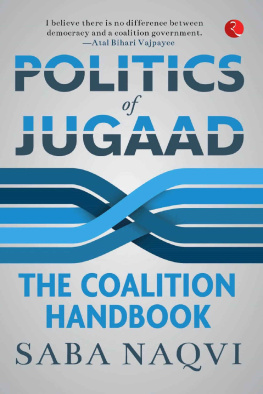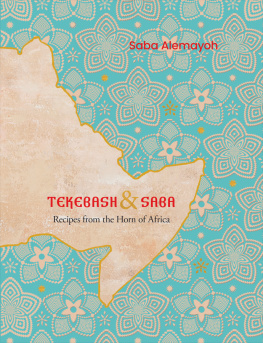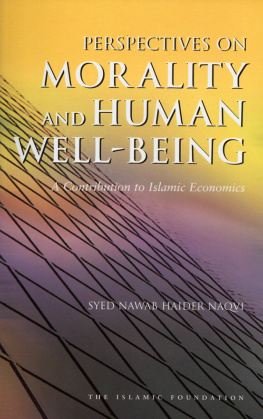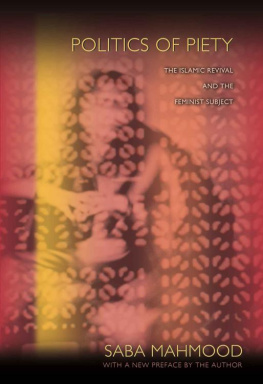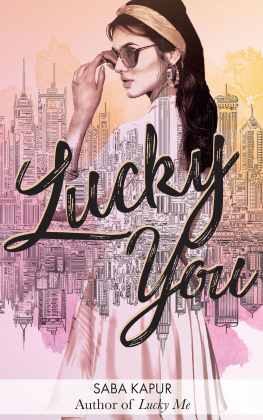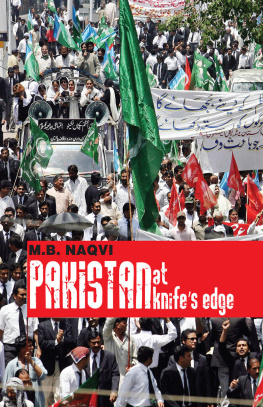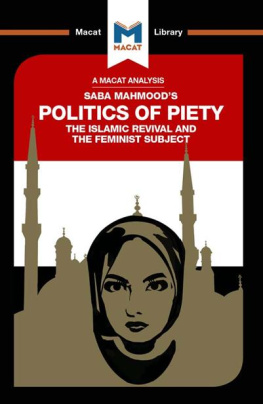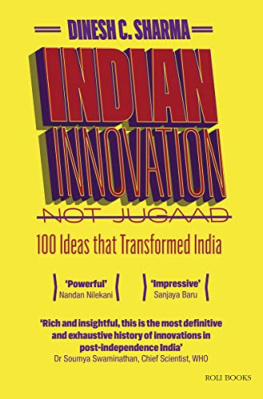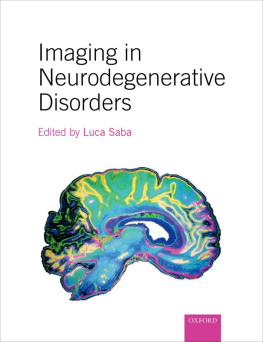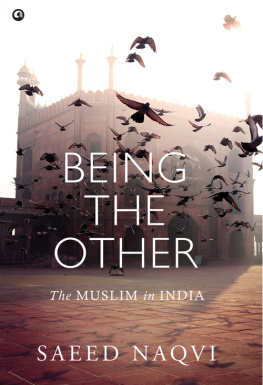Saba Naqvi - Politics of Jugaad: The Coalition Handbook
Here you can read online Saba Naqvi - Politics of Jugaad: The Coalition Handbook full text of the book (entire story) in english for free. Download pdf and epub, get meaning, cover and reviews about this ebook. year: 2019, publisher: Rupa Publications India, genre: Politics. Description of the work, (preface) as well as reviews are available. Best literature library LitArk.com created for fans of good reading and offers a wide selection of genres:
Romance novel
Science fiction
Adventure
Detective
Science
History
Home and family
Prose
Art
Politics
Computer
Non-fiction
Religion
Business
Children
Humor
Choose a favorite category and find really read worthwhile books. Enjoy immersion in the world of imagination, feel the emotions of the characters or learn something new for yourself, make an fascinating discovery.
- Book:Politics of Jugaad: The Coalition Handbook
- Author:
- Publisher:Rupa Publications India
- Genre:
- Year:2019
- Rating:5 / 5
- Favourites:Add to favourites
- Your mark:
- 100
- 1
- 2
- 3
- 4
- 5
Politics of Jugaad: The Coalition Handbook: summary, description and annotation
We offer to read an annotation, description, summary or preface (depends on what the author of the book "Politics of Jugaad: The Coalition Handbook" wrote himself). If you haven't found the necessary information about the book — write in the comments, we will try to find it.
Politics of Jugaad: The Coalition Handbook — read online for free the complete book (whole text) full work
Below is the text of the book, divided by pages. System saving the place of the last page read, allows you to conveniently read the book "Politics of Jugaad: The Coalition Handbook" online for free, without having to search again every time where you left off. Put a bookmark, and you can go to the page where you finished reading at any time.
Font size:
Interval:
Bookmark:

Saba Naqvi is one of Indias best-known journalists, an author and election analyst. Her previous books include In Good Faith: A Journey in Search of an Unknown India (2012), Capital Conquest (2015) and Shades of Saffron: From Vajpayee to Modi (2018).

Published by
Rupa Publications India Pvt. Ltd 2019
7/16, Ansari Road, Daryaganj
New Delhi 110002
Copyright Saba Naqvi 2019
The views and opinions expressed in this book are the authors own and the facts are as reported by her which have been verified to the extent possible, and the publishers are not in any way liable for the same.
All rights reserved.
No part of this publication may be reproduced, transmitted, or stored in a retrieval system, in any form or by any means, electronic, mechanical, photocopying, recording or otherwise, without the prior permission of the publisher.
ISBN: 978-93-5333-418-5
First impression 2019
10 9 8 7 6 5 4 3 2 1
The moral right of the author has been asserted.
This book is sold subject to the condition that it shall not, by way of trade or otherwise, be lent, resold, hired out, or otherwise circulated, without the publishers prior consent, in any form of binding or cover other than that in which it is published.
Contents
Introduction
IN PRAISE OF COALITIONS
T he narrative trotted out by many in the mainstream media today makes coalitions sound almost dangerous for the country. The charges are that they are inherently unstable and extractive in nature, implying that smaller players are in a position to blackmail the larger party at the centre of a coalition. Some critiques are validwe will examine the history of coalitions later in this bookbut there is also an exaggerated fear of coalitions. The truth is that many of us have grown up under coalitionsthe only thing is we did not perceive it that way. We thought we were under the Manmohan Singh or the Atal Bihari Vajpayee government, identifying a complex regime with a single individual, when, in fact, we have mostly had coalition rule in India since 1989.
A change did take place in 2014, when the Bharatiya Jan ata Party (BJP) won a simple majority in Parliament. It is since then that the narrative by some sections of the media began to posit single-party rule under a strong leader as the only answer for India. The fascination with a great leader, such as Prime Minister (PM) Narendra Modi, is now quite pervasive. The words used for him are decisive, strong and an individual with authority. In the past, Indira Gandhi would have fit the same mould.
I started work on this book by looking up the meanings of coalesce and coalition. Briefly, this is what I got from my search. The word coalesce, I had imagined, could come from the collision of two objects. However, it means something a little different. According to the Cambridge Dictio nary , coalesce means to combine into a single group or thing. A coalition, we quite well understand in India, means the joining together of different political parties or groups.
India is the worlds second-most populous country and its largest democracy. It is, in a sense, a coalition of states where people speak different languages and have different linguistic and cultural histories. Yet, coalitions somehow have a bad association in some of our minds as being inherently unstable. It is, however, true that in the past, it is only coalitions with a large party as the pivot that have survived their terms. Looking into the future, one can suggest that a mere collection of regional parties is unlikely to survive a term, as the orientation of each constituent would only be towards their region and perhaps not towards the nation as a whole. Still, it is better to recognize that anything can happen and there are no hard and fast rules.
The most common charge levelled at coalitions is that they are bad for governance. But when we examine economic data, it turns out that some of our most prosperous years have been under coalition governments. Being a non-expert on economy, let me refer to others. According to a detailed report published in T he Economics Times on 29 September 2017, a coalition government that had consensus on policymaking was probably better than the one with
Besides, there are other values, such as equality, that are difficult to measure, which coalitions can bring to the table. In an age where they are also an outcome of very legitimate electoral processes, one can argue that coalitions can be fundamentally more just and representative than single-party regimes. Coalitions give real clout to state parties and thereby to the people of the regions. One could, therefore, argue that, theoretically, the most representative regime that a country like India could have is a coalition of state parties. Take out a hundred-rupee note and look at the picture of Mohandas Karamchand Gandhi on the right; at the centre, 100 rupees is written in bold, in Hindi; turn the note around, and on the left-hand corner, there is a small column that has 100 rupees written in fifteen Indian languages.
The currency we handle every day takes note of our extraordinary social composition as a nation: We have several languages with their own scripts and literature (besides the many dialects within the languages).
My question then is this: Why should a party that performs well in the Hindi-speaking parts of India inevitably end up leading the nation? Some of our most significant political leaders have repeatedly got elected from Uttar Pradesh (UP)Jawaharlal Nehru (Phulpur), Lal Bahadur Shastri (also from seats around Allahabad), Indira Gandhi (Rae Bareli, though she contested once from Chikmagalur in Karnataka), Ra jiv Gand hi (Amethi), Vishwanath Pratap Singh, or V.P. Singh (Allahabad), Chandra Shekhar (Ballia), Sonia Gandhi (Rae Bareli), Vajpayee (Lucknow) and PM Modi (Varanasi). With the exception of Sonia Gandhi, all the others have been PM. H.D. Deve Gowda from Karnataka, Narasimha Rao from Andhra Pradesh and Morarji Desai from Maharashtra also became prime ministers. Manmohan Singh was a Rajya Sabha Member of Parliament (MP) and Inder Kumar Gujral had once contested a Lok Sabha poll from Jalandhar in Punjab.
I have been raised in Delhi, but UP is where my family comes from, scattered across towns in Awadh with an ancestral village in the Rae Bareli district. I love the state and I understand its language, idioms and cultural tones. It has also given me an education on the politics of caste and community. But it is a backward and poor society, and has not made any impressive progress on indices such as health and education. It has also not had any significant economic growth, and joblessness is rampant, as is crime.
Yes, it is the countrys most populous state, with a population higher than many large nations. In 2014, Modi, the former Gujarat chief minister for twelve years, left his home state and stood from the parliamentary seat of Varanasi in UP when he made the successful bid for prime ministership. Varanasi (or Kashi), the holy town by the Ganges, has an all-India symbolism that pervades the consciousness of many Hindus, particularly those from the upper castes. As we head towards the elections in 2019, Ayodhya in UP, not far from my family village, is again being presented as an all-India symbol embodying Lord Ram, in an attempt to create a certain religious-political consciousness.
Yet, it is a valid question for us to ask: In principle, why can we not have a prime minister from Vadodara in Gujarat, the other seat Modi stood from in 2014 and subsequently gave up? Why is it outside the realm of probability that a PM could come from Tamil Nadu or Kerala or the Northeast? Do we believe that a leader who represents the Hindi-speaking regions is more representative of India than those from other regions?
Font size:
Interval:
Bookmark:
Similar books «Politics of Jugaad: The Coalition Handbook»
Look at similar books to Politics of Jugaad: The Coalition Handbook. We have selected literature similar in name and meaning in the hope of providing readers with more options to find new, interesting, not yet read works.
Discussion, reviews of the book Politics of Jugaad: The Coalition Handbook and just readers' own opinions. Leave your comments, write what you think about the work, its meaning or the main characters. Specify what exactly you liked and what you didn't like, and why you think so.

